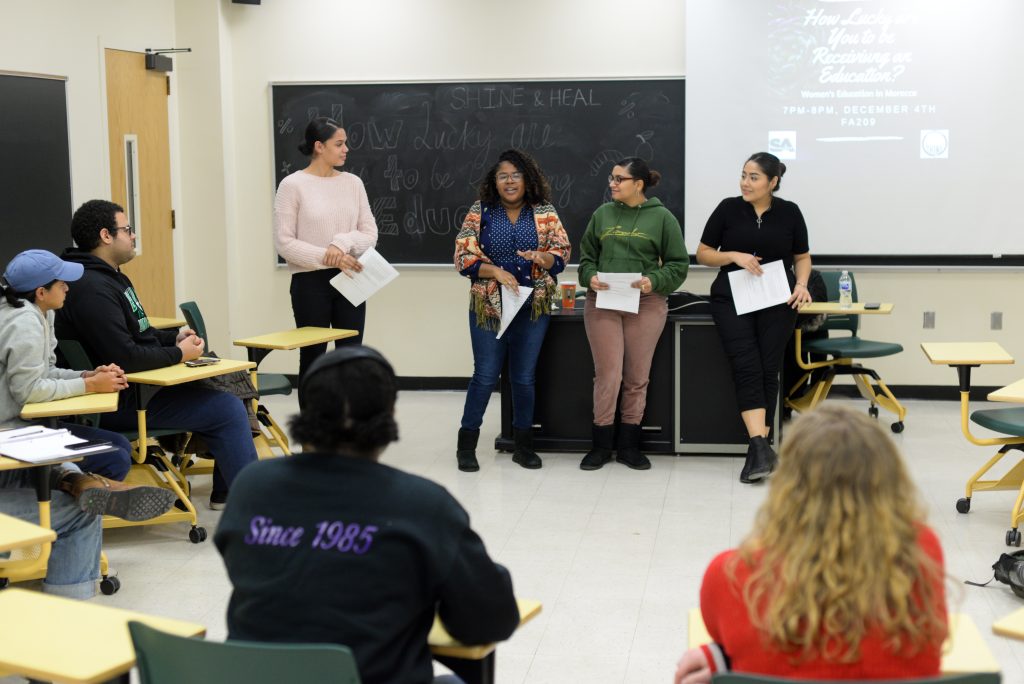
In the week before finals, the Service for Health, Inequality reduction, Natural disaster relief and Education (S.H.I.N.E.) has been spreading awareness on issues affecting the Binghamton University and worldwide community.
Titled “S.H.I.N.E. Week,” the series of events aims to educate students on the organization’s main areas of focus, as defined in its name. According to Ana Mateo, a member of S.H.I.N.E. and a senior majoring in anthropology, the club plans the week-long series annually.
“We do events on philanthropy, which is service for health and inequality reduction, natural disaster relief and education,” Mateo said. “Yesterday we did health, which was ‘Stop the Bleed,’ so people who came to the event got ‘Stop the Bleed’ certified, today was on inequality reduction, tomorrow will be on the California wildfires and for education we will hold an event on Thursday on making events more accessible for people with disabilities.”
On Tuesday, the organization co-sponsored an event with Higher Education Advocacy Leaders (HEAL), a new on-campus group that advocates for higher education rights, to talk about gender inequalities in Morocco.
The discussion focused on the disparity between educational opportunities offered to boys compared to girls in the country.
“In rural Morocco, almost 90 percent of women are illiterate due to the fact that they are sent out to work instead of going to school,” Mateo said. “They don’t really like boys and girls to be mixed together, so they don’t like to send their daughters out to school and would rather keep them home to work on their farms.”
Often, education is extremely important for future opportunities, so those who lack it can be left behind. Imina Emokpae, vice president of S.H.I.N.E. and a junior majoring in integrative neuroscience, said her father’s education allowed him to become a doctor.
“I feel like depending on your background your education is all you have to succeed,” Emokpae said. “My father came from Nigeria. He would always tell me how he had [to] feed the goats every day at five in the morning before school and now he’s a doctor. That elevation and growth is all you have, especially if you’re low-income or a person of color, so I take it very seriously.”
Students also discussed barriers to education in the United States. Ahjah Renee Adams, a junior majoring in comparative literature, said she doesn’t come from a privileged background and feels extremely lucky to be able to receive higher education.
“My mom could have flat out told me, ‘Hell no, you’re going to work, we have bills to pay,’ but I was lucky enough for her to give me the opportunity to go [to college],” Adams said. “Yeah, it’s stressful, but you could be taking care of your 12 brothers and sisters, rather than stressing over an exam that’s going to be done in an hour.”
Organizers encouraged attendees to think about ways to address these issues in Binghamton and around the world. They also invited students to come to S.H.I.N.E. events later in the week, which will include a discussion on the recent California wildfires on Thursday.


